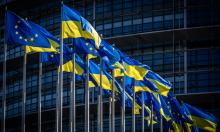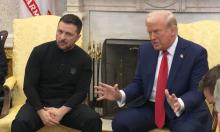Moscow say actions accompanying NATO expansion contradict the spirit of Russia-NATO partnership
Moscow believes that the actions accompanying the expansion of NATO contradict the spirit and guidelines of Russia-NATO partnership.
According to a ranking source in the Kremlin, Russia-NATO interaction in the light of bloc expansion and admission of seven new members - Bulgaria, Latvia, Lithuania, Romania, Slovakia, Slovenia and Estonia - on March 29 will be at the top of the agenda of the talks with NATO Secretary General Jaap de Hoop Scheffer. It is his first visit to Russia in the new capacity.
The Kremlin believes that Russia-NATO interaction in the interests of stronger security and stability in Europe and the world largely proceeds within the framework of the NATO-Russia Council set up in 2002. "In the two years since its establishment, the Council proved viable and developed into a sufficiently effective mechanism of political consultations and practical co-operation," said the Kremlin source. Permanent political dialogue between the 20 Council members helped to reach mutual agreement and bring closer together the sides' stands on outstanding issues on the agenda of Russia-NATO relations.
"We have set up about a score of permanent specialised groups that are working for practical results," said the interlocutor. "We have made a good start in crisis management, counter-terrorism, non-proliferation of weapons of mass destruction, theatre missile defence, and emergency civilian planning, and we are stepping up military co-operation."
In his words, the current agenda includes the harmonisation of the military capabilities of Russia and NATO, including the development of operational compatibility of units of the Council member states through joint exercises.
At the same time, the admission to the bloc of the three Baltic countries and Slovenia, which are not signatory of the November 19, 1990 CFE treaty, will change the European security situation because the treaty obligations to limit armed forces do not spread to these countries, the Kremlin representative pointed out.
"Besides, the NATO expansion is accompanied by actions that worry the Russian public," said the source. "Demonstration flights of AWACS planes were recently held close to the Russian border and four F-16 fighters have been deployed in Lithuania, allegedly for intercepting 'air terrorists'. This does not correspond to the spirit and guidelines of the current Russia-NATO partnership.
"The ratification of the CFE Adjustment treaty is still on the Russia-NATO agenda. The CFE treaty is the cornerstone of European security and we will keep searching for compromise solutions that would ensure its adjustment as soon as possible," concluded the Kremlin interlocutor.
Subscribe to Pravda.Ru Telegram channel, Facebook, RSS!





